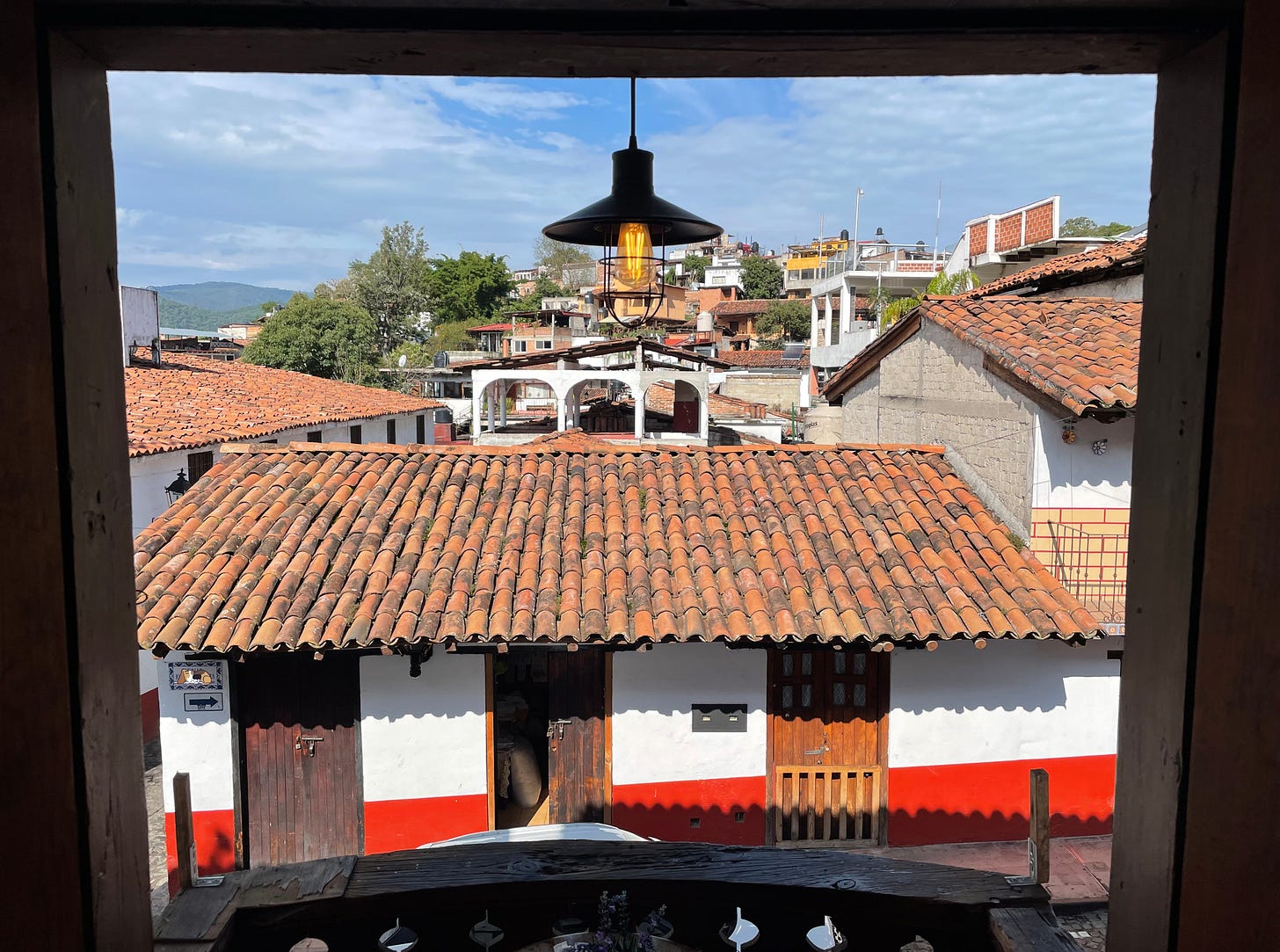The Joy Of Doing Nothing
A summer reflection from the end of the world
As this blazing summer settles in, I found myself reading two essays lamenting the enormous and impossible task of doing nothing and accusing those who prefer quiet to noise as evil gentrifiers. (Both were in The Atlantic, naturally.) Allow me a brief dissent.
Doing nothing is glorious. It is one of life’s deepest pleasures and ultimate goals. Yesterday, I walked out a couple of miles to a stretch of beach at the end of Cape Cod, where the tide sweeps in and out to create shallow, vast, warm pools of water surrounded by marshes. I brought a book, which was in fact a collection of Cicero’s essays on life and death and old age, but never opened it. I’d already started, and Cicero’s defense of getting old amounts to the idea that you can keep working productively until the day you drop dead, which was not exactly the theme I was after when I picked it up, but I left it in my knapsack for other reasons.
One of those reasons was to use my eyes beyond reading. Words, words, words, anything to be free of them from time to time. The view is always a unique variation on the same, unchanging theme — sand, grass, water, sky — with one obvious exception. A whole stretch of dunes was wiped out a few years ago by a couple of really bad Nor’easters. Most of us saw it as another disaster caused by climate change. But it turns out these dune wipeouts happen every now and again, and, over time, the tidal patterns rebuild the mounds and drifts of sand that eventually become covered again with dune grass, and wild rose-bushes. I’m not saying climate change isn’t affecting the Outer Cape — the erosion is very real just a few hundred yards away — but the sight of these recovering wounds makes me feel a bit better. Yes, everything changes. But everything also stays the same.
And every year in the quarter of a century I’ve been coming here, Provincetown has changed a little. I reviewed a book last month about the Cape in the first part of the 20th century, where artists and playwrights and intellectuals and architects and painters of extraordinary caliber and individuality chose this wilderness as a refuge, and a place to dream up new ways to change the world. This was where Eugene O’Neill and Tennessee Williams reinvented American theater, where Charles Hawthorne and Hans Hofmann shifted the fine arts, where Norman Mailer and James Baldwin hung out together, where Dwight Macdonald could be spotted on a July afternoon playing softball with Irving Howe.
Squint your eyes and the physical landscape is really not that different (thanks, mostly, to the National Seashore and aesthetic restrictions on new building), even though the outside world has changed beyond measure. In fact, many of the utopian dreams championed and debated in this changeless nook — Marxism, Stalinism and Trotskyism, to name a few — became (rather swiftly) nightmares for millions of others elsewhere. Other experiments pioneered amid this captivating, do-nothing beauty: abstract expressionism and the Bauhaus school — the kind of ugly it takes an intellectual to imagine.
And in these years, America too has changed. Through the hellish years of AIDS through the integrative power of marriage equality, the stigma of gayness has eroded like the dunes (and at some point, one assumes, will rebuild in some modest way like the dunes as well). Yes, gay culture is different than it was, more established, less tortured, more diffuse. Gay kids today do not grow up as I did, and it shows.
But when I ask myself if something fundamental has changed in gay life, as integration has arrived, I tend to think less than I may have once thought. I look around me in Ptown: the parties and parades, the costumes, the drag queens, the drinking, the procession to the beach and back, the tea dance every afternoon, the pizza crowds after the bars close, the ebbs and flows of the weeks, the lost bikes and new grudges, the dick dock and the new viruses. It’s all here still, coming but never completely going.
I see the same vacation patterns — the highly scheduled pack-fags who come in groups and do everything together, the loner weirdos strolling the emptier beaches, the scraggly bad street musicians, the ripped already-retired 50-year-old CEOs, the exhausted houseboys and waiters, the effeminate voices that won’t quit. What’s new: hordes of strapping, young straight Bulgarians, on work-study visas doing the shit-work; Massachusetts bachelorette parties, in groups at restaurants, reaching decibel peaks that will clear a room of gay men in seconds; helicopter gay parents dragging their theybies past multi-colored flags representing some previously esoteric sexual taste as if it’s a UN-recognized nation-state. Bear Week, I suppose. More seals and foxes. Monkeypox.
And, yes, it’s noisier, and I’m not here for it. From the pedicabs’ boomboxes, to the speakers perched on the back of narcissists’ bikes to the sad young party boys carting their bluetoothed contraptions through the fricking marshes in case a moment of serenity might interrupt their day, it’s louder than it was. Construction even seems to intensify throughout the summer, with concrete-cutters next door making one week this July particularly memorable, as new money comes in from people who see Ptown less as an escape than as an investment. No, the wealthy are not after peace and quiet. And only a writer from Brown who uses “Latinx” without irony could think so.
Even in the tidal pools, strains of radio sounds can come skimming across the water, like alien signals. But for the most part, it’s still silent there. The pools only last a few hours, and get warm after traversing the sand heated by the August sun, and they’re shallow enough you can actually sit in them around high tide, your tush on the sand, your head bobbing like a lost buoy above the ripples. At that point on the beach, the men — and a couple of daring dykes every now and again — tend to hang out naked, which is less sexy in the Cape light than one imagines.
And there’s one old man out there I’ve seen for decades, maybe in his 80s now, somehow making it across the marshes (though I saw him once get picked up by a friend in a rowboat) to take his habitual position alone past almost all the crowds, near the dunes roped off to protect the piping plovers, in the sliver of sand between the Atlantic and the pools.
He sits there in the buff looking at the ocean — occasionally crossing to dip into the pools — and so far as I can tell, he does nothing else at all. When people say to me that I’d never retire, I’d get so antsy and bored, so restless and eager for distraction, I feel like pointing to that old dude and saying: watch me.
(Note to readers: This is an excerpt of The Weekly Dish. If you’re already a subscriber, click here to read the full version. This week’s issue also includes: my reaction to the abortion vote in Kansas; a long conversation with Sohrab Ahmari on the failures of liberalism; a variety of reader dissents on the Inflation Recovery Act, Orbán and other topics; seven notable quotes from the week in news; 22 recommended pieces from other Substackers on a wide variety of subjects; a Mental Health Break video of an old man by the snow; window views from Budapest and the wilderness of Washington state; and, of course, the results of the View From Your Window contest — with a new challenge. Subscribe for the full Dish experience!)
From a subscriber who is sticking with us:
I’d recently cancelled a number of paid media subscriptions, including your substack, trying to pair back expenses and time commitments. However, I find that the Dish is just too damn good to do without. Whenever I think of the clarity, intellectual honesty, and fundamental decency embodied in the Dish, I’m always reminded of George Orwell. It’s difficult to overstate the importance of such voices in times such as these, so thank you!
Yes, Politics Works — Even On Abortion
I hope that this week reassures many liberals that politics is not something you need to protect yourselves from with court rulings or moral posturing but something worth engaging, even with relish. The results in Kansas — yes, Kansas — exposes the real weakness of the Christianist position — something that the Supreme Court had occluded for decades.
(Read the rest of the piece here, for paid subscribers, where I also touch on the latest news involving trans kids and monkeypox.)
New On The Dishcast: Sohrab Ahmari
Sohrab is a founder and editor of Compact: A Radical American Journal, and he’s a contributing editor at The American Conservative. He spent nearly a decade at News Corp. — as the op-ed editor of the New York Post and as a columnist and editor with the WSJ opinion pages in New York and London. His books include From Fire, by Water: My Journey to the Catholic Faith and The Unbroken Thread: Discovering the Wisdom of Tradition in an Age of Chaos. A new voice for a new conservatism, I tried to talk him through how he got to this place — politically and spiritually.
For two clips of our convo — on whether the free market is actually a tyranny, and how many liberals actually reject democracy, e.g. Brexit — pop over to our YouTube page. Listen to the whole episode here. That link also takes you to a new transcript of our episode with David French, along with listener commentary over Larry Summers and reader commentary over Viktor Orbán. Here’s a clip from Summers:
A listener writes:
As I have aged, I find it difficult to fall asleep at night. I’ve tried all the tricks — meditations, deep breathing — but nothing seems to work. BUT, I have discovered a miraculous solution: I place my cellphone right next to my pillow and listen to your podcasts. It’s not that they’re boring — they are not — but somehow the voices put me to sleep in about 10 minutes. Last night it was Goodhart, before that Summers, Fukuyama, Montás — and tonight Kirchick. In the morning I listen to them while awake with breakfast, and I have many more to go. I am getting my money’s worth with the subscription!
Browse the entire Dishcast archive for an episode you might enjoy. Next week is the war correspondent Dexter Filkins to discuss the death of Zawahiri and other topics, such as his profile of DeSantis.
Money Quotes For The Week
Listen to Scarlett Lewis, a Sandy Hook mother, speak directly to Alex Jones in court this week (via Matt Labash):
Six more money quotes are here, in the full Dish.
Dissents Of The Week: A Dog’s Breakfast
Not much pushback in the in-tray this week. Over on the pod page, Larry Summers responds to a listener dissent, while a reader defends Rod Dreher against my criticism of him on Orbán. Here, a dissent over my latest lead item:
You wrote about Biden, “That B+ on the climate depends of course on whether the Schumer-Manchin deal struck this week can get to the president’s desk.” I don’t expect you’ve read the 725-page Schumer-Manchin bill — no one has, not even our 535 members of Congress. But I’ve read some of it. It’s a dog’s breakfast of supposedly revenue-raising measures to reduce the deficit with a few sops to the left on the ACA and climate change.
Almost all economists agree that the most efficient way to reduce emissions of CO2 is to increase the cost of emitting it. Instead, we get countless subsidies for various favored industries, industrial policy by another name, to be paid for with illusory tax increases that are certain only to make lawyers and accountants richer. I’d be curious to hear a good defense about how $7500 Tesla subsidies to families making up to $300K/year is a good way to combat climate change. Or how will a $4000 subsidy for families making up to $150K for buying used Teslas do anything other than make the sellers of used Teslas $4000 richer? And that’s just a few examples in the climate part.
As Milton Friedman noted, “One of the great mistakes is to judge policies and programs by their intentions rather than their results.” I think it’s a mistake to grade either Biden or this bill’s authors based on intentions, however noble they may be.
Politics is messy. And climate change, in my view, is an emergency. I don’t disagree, for example, that a carbon tax would be better. But now? With gas prices through the roof? The most important question with respect to the IRA is: compared to what? I’ll take it — and it caps a surprising string of legislative victories for Biden.
If you missed last week’s big batch of dissents over Ukraine, here’s the link. And our page of dissents on DeSantis continues to get traffic — check it out. Our most trafficked page yet was on abortion in the wake of Dobbs — newly relevant this week. Keep the criticism coming: dish@andrewsullivan.com.
Cool Ad Watch
In a roundup of “the best examples of SFW porn advertising,” Copyranter calls this one a “mesmerizingly brilliant spot for the German erotic TV channel’s child lock feature”:
In The ‘Stacks
This is a feature in the paid version of the Dish spotlighting a bunch of our favorite pieces from other Substackers every week. This week’s selection covers subjects such as Tuesday’s elections, Internet porn, and pot in Thailand. Below are a few examples:
You can also browse all the Substack writers we follow and read on a regular basis here — a combination of our favorite writers and new ones we’re checking out. It’s a blogroll of sorts. If you have any recommendations for “In the ‘Stacks,” especially ones from emerging writers, please let us know: dish@andrewsullivan.com.
The View From Your Window Contest
Where do you think it’s located? Email your guess to contest@andrewsullivan.com. Please put the location — city and/or state first, then country — in the subject line. Proximity counts if no one gets the exact spot. Bonus points for fun facts and stories. The winner gets the choice of a VFYW book or two annual Dish subscriptions. If you are not a subscriber, please indicate that status in your entry and we will give you a free month subscription if we select your entry for the contest results (example here if you’re new to the contest). Happy sleuthing!
The results for last week’s window are coming in a separate email to paid subscribers later today. A sneak peek from a sleuth:
I’m a Dish reader from way back — way, way back. I started reading it circa 2004. So long ago that I cannot remember the specifics. I once submitted a picture of my wife’s black dog (a running topic at the time) and it was posted, providing a few famous minutes towards my lifetime’s allotment of 15.
I have always enjoyed the VFYW contest, even though I have no skill for it. Early on, I would try to find attributes worth googling, such as types of trees, unique-looking roof appliances, and other geographic standouts. I learned quickly that there are many window sleuths who are more knowledgeable than me about all these factors, that are better traveled than me, that are able to quickly recall where they themselves had seen something triggering, and that live in all corners of the world. I long ago gave up on spending the time to figure out a city when I see so many sleuths identifying the specific window from which the picture was taken. I bow down to the likes of Chini. I gave up to such an extent that I did not even recognize the view from Evanston, Illinois, even though I lived a few blocks from the window from ages 11-18.
All of that preamble is to help explain how happy it made me to quickly identify [redacted] this week!
Of course, I have not forgotten the level of competition that I am playing against this week and every week. If I figured out this window so quickly, I have no doubt several thousand other sleuths have, too. I don’t envy the tie-breaking process that will be needed, but that will not stop me from enjoying my first-ever moment of finding the location!
Subscribers can read the full results later today. See you next Friday.





